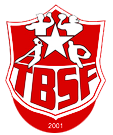|
It can be gained on sports betting — but it ain't easy. There is no formula magic, so you may as well learn to accept that. The following article offers a set of good tips that will bring you to the clue for winning betting. For more resources, most internet gambling websites also provide useful information and tools for beginners. But let us begin with the other side of the problem first.
Why Do People Lose Money on Bets?
There is a saying that 90% of players lose money in a year, but they keep playing despite that. When these players finally get depleted of funds, others just replace them. Let's point out the most frequent causes why people fall "in the red":
- Poor bankroll management. The "bankroll" refers to the certain sum of money allocated solely for betting.
- Choosing the wrong sport. Football and basketball are the leaders in popularity and turnover, yet they are two of the most challenging for long-term profitability.
- Being ignorant. Understanding football doesn't necessarily mean understanding football betting in the right way.
- Bindly following TV broadcasts. Having unlimited sports broadcasts, most bettors think they have to bet on everything they watch, mostly ignoring better events.
- Emotional decisions. Gambling more in an attempt to recover losses or bluffing when you are ahead is dangerous. Betting has to be conducted based on facts and strategy, not feelings.
There are other, at times absurd, causes of loss, naturally. No one is completely immune to loss, but in order to start making real profit, you must hear the following seriously.
Choosing a Sport
Beginners tend to try to find the most "profitable" sport for betting. Some recommend football, some guarantee hockey, and some are satisfied with tennis. The truth is that there is no universal solution. Each person makes his own decision. For example, tennis is typically enjoyed by beginners because there are only two possible outcomes, and surprise is not so frequent.
Our advice: learn your sport in and out. Knowing that the football team has won its last six matches is not enough. You must understand how good they defend and attack, whether they have any injured players, and what the strength of their last opponents was.
Some seasoned bettors make the point that less popular sports (e.g., table tennis or water polo) could be more lucrative because the bookmakers study them less rigorously, which translates into better odds. However, the more popular a match is, the more options there are for placing bets — as long as you have more opportunities to find value.
Bankroll Management
The basic rule is this: you allocate a specific sum of money for gambling, and every wager must be an equal proportion of this amount. Most importantly, it should not be your last bit of money or borrowed cash.
Experts say never wager more than 2% of your bankroll on a single bet. Of course, it depends on your strategy (if you have one). There are several popular strategies: "pie slicing," "inside-out," and Kelly Criterion variations.
Accurate bankroll management protects you from going broke too quickly, keeps you disciplined, allows you to control risk, and gives you a truthful understanding of your performance. This process increases your overall chance of staying profitable — or at least stop excessive losses too early.
Technical Preparation
A mature punter does not confine himself to a single or two bookmakers. You should ideally have accounts at several of them so you are always able to opt for the best odds for your bet. You should also be accustomed to different payment systems so you are able to deposit instantly when necessary.
Strategies
There are hundreds, if not dozens, of betting strategies. Each one has its good and bad points, but nobody can promise 100% success. Some of the most widely recognized are:
- The Chase (Martingale-type)
- Flat betting
- Value betting (undervalued by the bookmaker)
- Live betting
- Martingale
Each of them is not perfect, but using a strategy is better than placing random bets or betting on instinct.
Special mention should be made of arbitrage betting ("surebets") — placing a bet on all possible results of a match at different bookmakers so that, with the proper distribution, you win regardless of what happens. While this strategy is legal, it has its disadvantages:
- Profit margins are small (1–2% already too much), which means you need tremendous capital.
- Big bookmakers actively fight arbitrage players by limiting stakes or detecting multiple accounts.
Because of these issues, arbitrage betting as a long-run strategy is never a possibility.
Software and Services
There are various tools that can help you bet better. They are free or fee-paying, niche or general purpose. Some key categories are:
- Advisory tools – collect and condense large sets of data for easier analysis.
- Calculators – automatically calculate best bet stakes under different strategies.
- Bankroll management software – help you track and organize your finances.
- Scanners – find arbitrage opportunities, odd movements, or unusual patterns.
- Automation tools – bookmaker-specific programs that accelerate your betting process.
In addition to desktop or mobile software, there are also online services providing the same features. Their greatest benefit is that they can be accessed anywhere with an Internet connection.
More Tips
These are some more suggestions after years of experience:
- Favourites do not always win. Low odds may feel "safe," but a single unexpected defeat can ruin your bankroll.
- Don't bet on teams or players you happen to support — bias spoils judgment.
- Drill in your mental discipline — the key to long-term success.
- Never buy so-called "fixed matches." Whoever sells them online is a scammer. Even if they do exist, the few people who know about them won't tell.
- Learn about value betting and start applying it in practice.
- Don't listen to "experts" and tipsters. The final decision is always up to you.
I hope that this article is a starting point for you on the way to earning money on sports betting!
|

